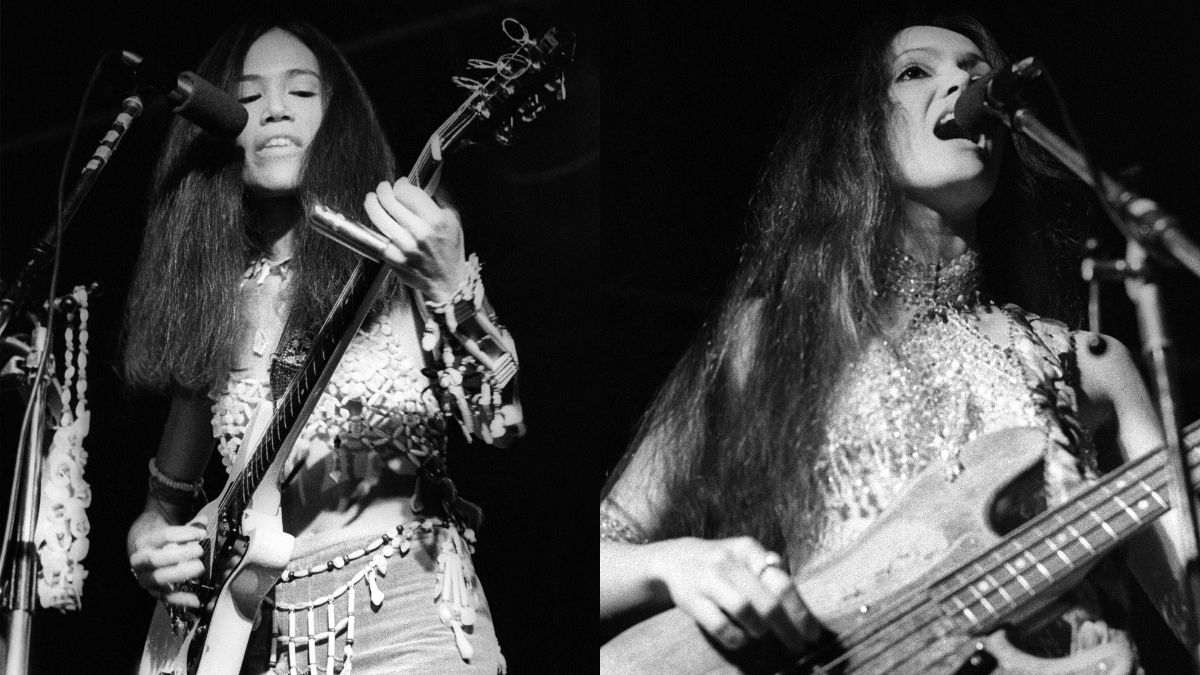Enslaved’s Ivar Bjørnson: “Sometimes a bit of chaos is what you need to get things moving when they’re going stale”
The creative driving force behind the Norwegian extreme metal stalwarts on why the guitar solos had to return, and why shorter doesn't mean less progressive when it comes to songs

All the latest guitar news, interviews, lessons, reviews, deals and more, direct to your inbox!
You are now subscribed
Your newsletter sign-up was successful
The primeval landscapes of Norse mythology and Swiss psychoanalyst Carl Jung’s Shadow theory heavily influenced the direction of Norwegian extreme metal outfit Enslaved’s Utgard, an album ultimately about diving into the unknown.
While staring into the abyss could have cast a gloomy pall on the band’s 15th full-length, songwriter and founding guitarist Ivar Bjørnson instead brought an ambitious assortment of riffs back to our realm.
“It has a lot of rewards, like humor and creativity,” he says of the benefits of exploring the dark side. “Sometimes a bit of chaos is what you need to get things moving when they’re going stale.”
Utgard has certainly shaken up Enslaved’s sound, some 30 years after the group first emerged out of Bergen’s black metal scene. Its most extreme example is Urjotun, where panicked motorik rhythms, oscillating Moogs and space-echo guitar transmissions reflect the band’s love of vintage krautrock, English post-punk stalwarts Killing Joke and the interstellar swerve of Hawkwind.
Gear-wise, Bjørnson enlivened Jettegryta”and Distant Seasons with the rich, resonant ring-out of an electric 12-string guitar. And while still fusing together elements of grey-skied folk, black metal grit and countless dizzying metre-shifts, Enslaved’s epics are coming in more compact than ever before, rarely crossing the six-minute mark.
“It feels like [Utgard is] an album that’s going further in a prog direction, but at the same time we’re shortening the songs, which is sort of a contradiction. At least for me, I associate prog with long songs.”
The tracks may be shorter, but lead guitarist Arve Isdal was given extra space to rip it up, something co-guitarist Bjørnson notes he’d been missing in recent years.
All the latest guitar news, interviews, lessons, reviews, deals and more, direct to your inbox!
“That was a conscious decision from my side: no matter what was going to be written for this album, there would be room for leads. Listening to [2017’s] E a few months after recording, it was like, ‘Where’s the leads?’” Bjørnson says with a laugh. “It really set the scene for [Isdal] going all the way on this one. The leads he delivered are just awesome.”
Isdal’s highlights include the spacious, soulful bends he brings to the blackened thrash attack of Homebound and the maelstrom of shred he pours into Storms of Utgard. After a quick-winding scale run on Sequence, though, he tags out to let Bjørnson run wild with some primal trilling.
“There’s no point in doing a lesser version of what Isdal is going to do,” Bjørnson says humbly of his lone solo on Utgard, offering of his style, with jokey resignation, “You want something fucked up, I’ll do it!”
- Utgard is out now via Nuclear Blast.
Gregory Adams is a Vancouver-based arts reporter. From metal legends to emerging pop icons to the best of the basement circuit, he’s interviewed musicians across countless genres for nearly two decades, most recently with Guitar World, Bass Player, Revolver, and more – as well as through his independent newsletter, Gut Feeling. This all still blows his mind. He’s a guitar player, generally bouncing hardcore riffs off his ’52 Tele reissue and a dinged-up SG.

